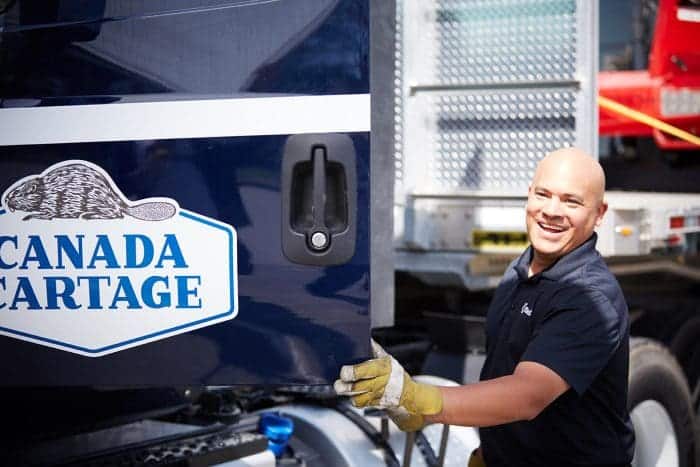Trucking Industry Under Scrutiny

The trucking industry is constantly under scrutiny for our safety record on the highways with accidents being publicized in the media and television shows like Heavy Rescue 401 that focus on incidents involving commercial motor vehicles. While every accident is one too many, truck drivers remain some of the safest drivers on the road.
According to provincial trucking officials, accidents involving transport trucks are uncommon. The Ontario Trucking Association points out that between 1995 and 2014, there has been a 66-per-cent decrease in fatal collisions involving transport trucks, despite a 75-per-cent jump in registries for the vehicles.
At Canada Cartage, we are working hard to ensure the safety of our drivers, other motorists, pedestrians, and our roadways. Safety is our #1 priority and we are a leader in proactive safety and compliance programs. We have a dedicated Safety & Compliance team that focuses on a number of initiatives that include:
- ProTrainer program
- Weekly reviews from Senior Management
- Mandatory driver requirements
- Robust driver screening
- Classroom Training
- Road Training
- Remedial training
- Trainer certification
- Standard Operating Procedures
- Random Inspections
- Safety Observation Program
- Preventative Maintenance
- Incident Response Team
- Accident Review Committees (ARC)
- Safety Performance Metrics
- National Safety Database
- MSO (Management Safety Observation) Program
Equipment safety
There are also a number of measures that Canada Cartage takes with equipment and drivers to ensure the roadways are safe for everyone. Speed limiters (or governors) are one of the many safety measures taken. All company owned, leased, rented, and contracted power equipment has a maximum speed limit of the lesser of 105 km/hr., or the posted speed limit.
Cell phone policy
Canada Cartage has a zero tolerance cell phone policy. The use of a cell phone or any other electronic device is prohibited while a driver is operating any vehicle or equipment. Use of a cell phone or electronic device is defined as talking, texting, touching, or holding a cell phone or electronic device. This includes the use of a Bluetooth connection to a truck mounted system, a Bluetooth connection to an ear bud or other device, or any form of “hands free” use. In short, drivers do not operate any electronic device while the vehicle is in motion, so that the number one focus is on the road.
Hours of Service (HOS)
To ensure that our staff are not driving while tired, all drivers are required to operate in compliance with HOS regulations and undergo training as part of the orientation process. Canada Cartage is also implementing an E-log system which will help facilitate the monitoring of drivers’ HOS.
Pre- and Post-trip Inspections
Canada Cartage drivers always complete a pre- and post-trip inspection on all equipment prior to taking any vehicle on a public road. Drivers do not operate any equipment with a major defect, and all minor defects are booked for service and repaired prior to the next dispatch of the equipment. Drivers are instructed on proper pre-trip completion, which is another important safety measure covered during driver orientation.
Canada Cartage is proud to have safety standards that consistently rank among the highest in the industry, and we always take a proactive approach by establishing safety programs that all our drivers must adhere to. At Canada Cartage, we recognize that we must all do our part to keep roadways safer for everyone.




